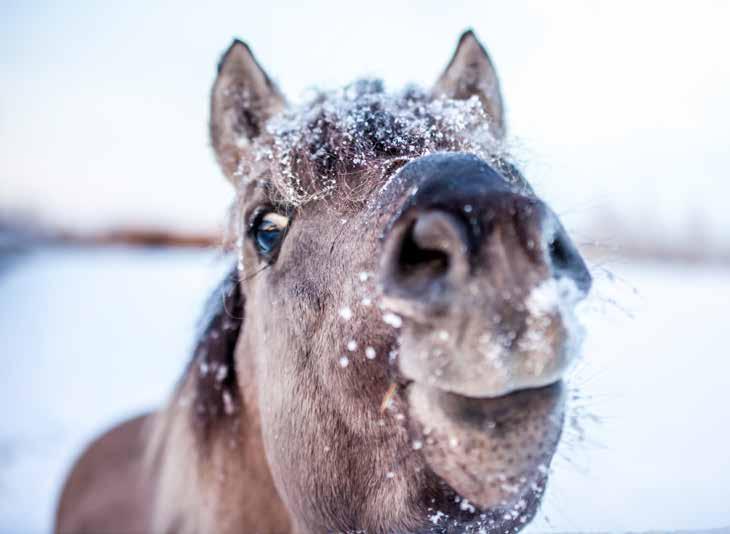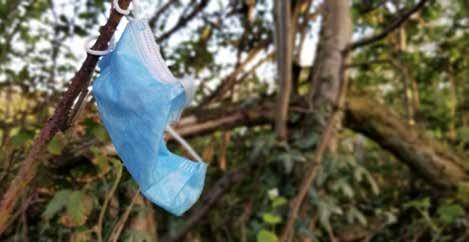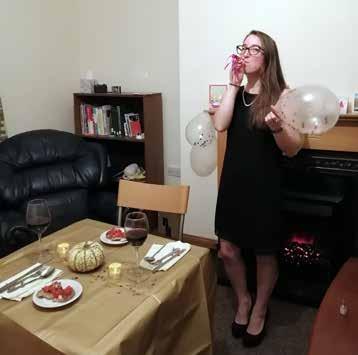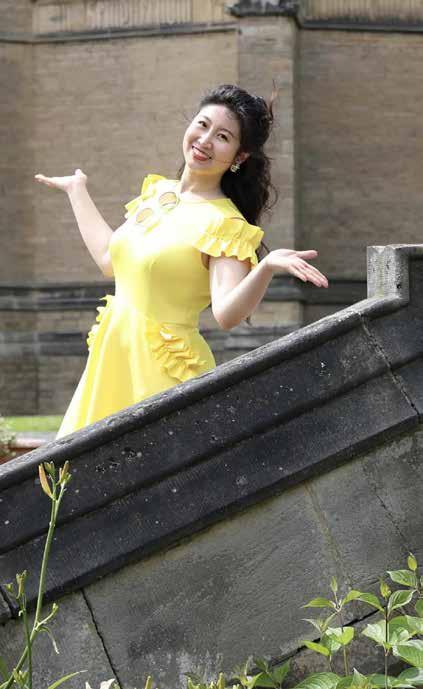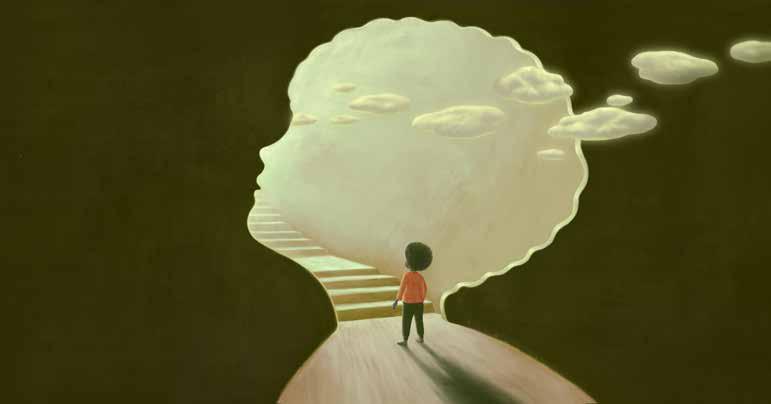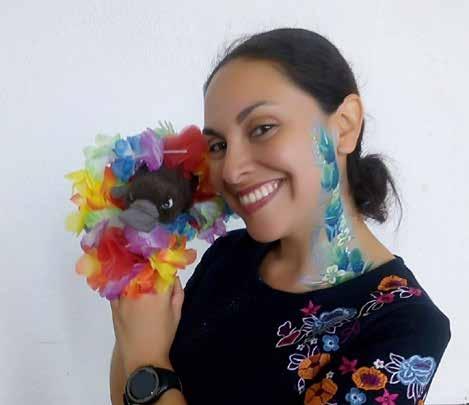
8 minute read
Ustinov at Home? Examining different conceptualisations of home among Ustinovians during the COVID-19 pandemic
Ustinov at home?
Examining different conceptualisations of home among Ustinovians during the COVID-19 pandemic
Advertisement
By Eirini Tzouma and Deshon Griffith
“Life seemed a bit messy at the time, so all I can recall is long emails and packing up my things. I left Durham and came back home. I was staying in my new room that was decorated with old posters, talking with people in Durham while listening to my favourite local radio station. The news about the virus was varied, and I was not certain if I should follow the BBC or my tele. The hardest part of all this was defining home.”
- Anonymous
This article has a long history; a history that in a way is aligned with its content. Co-author, Eirini, had just become part of the Global Citizenship Programme’s Media and Publications Team at Ustinov when the emergence of the pandemic rocked our once stable ground. The opening quote reflects a relatable experience for many, especially for those who decided to return to their home country. Thus, a question arises; “How did the pandemic affect our understandings of home?”
Eirini was not alone in this reflection. When she decided to reach out to co-author, Deshon, with her idea of investigating how COVID-19 affected Ustinovians’ conceptualisation of home, he himself had his own story of displacement in the pandemic. In March 2020, Deshon attended a conference in London and then, on a weekend visit to Oxford, was trapped in the national lockdown - unable to return to his country of origin (Barbados) and unable to return to College accommodation in Durham. He too had to grapple with new ideas of home - was it Durham, Oxford, Barbados or all three?


Around this time, Deshon had just instituted, along with Global Citizenship Programme team members Adam Burge and Chelsea Peer, an initiative called ‘UstinovNOW’. This platform was designed to keep the Ustinov community together even when students were no longer in Durham. The Ustinov community is a very diverse one, often referred to as a potpourri of cultures, ideas, and identities. The collective appreciation for individual idiosyncrasies, camaraderie and general support and affection for one another characterises the ‘Ustinov way’. Many aspects of Ustinov life centre around the physicality of Ustinov College grounds - Pub Quizzes, GCP Events, Ustinov Live, and so on. This was, indeed, the normal way of things at Ustinov; until 2020 happened.
The Media and Publications Team decided to carry out a survey through UstinovNOW. The whole project was conceived of by Eirini’s question about whether the pandemic might revive some more ‘conventional’ understandings of home, belonging and safety. However, the survey pleasantly surprised us. In the words of one participant, ‘this invisible enemy’, and the common experience of it, connected people in unexpected ways. Ustinov became home for many Ustinovians because it was safe, supportive, and lively. Some emphasised the online events, some the emotional and practical
support and some the very sense of community that existed even before the pandemic. In any case, it is the idea of a collective, especially in times when individualism often prevails. In this piece, trends in Ustinovians’ ideas of home are interpreted. Home is often a place; but is a home solely characterised by its materiality?

Home As A Controlled Choice
- Anonymous
A few respondents raised ideas of ‘home’ as a choice. The dynamic character of this concept is better understood when compared with what one respondent called ‘forced confinement’ during lockdown. The pandemic foregrounded a ‘state of exception/emergency’ in which freedom and safety were wrestling with each other. The meaning, compatibility, and importance of these ideals have been a well-known source of debate. However, as becomes clear from this quotation, choice is a powerful concept, especially during a health crisis which reinforces a sense of vulnerability and loss of control. Ustinov was for many a ‘chosen confinement’. Maybe this is our moment for another simple, yet crucial question: Why?
Home As A Feeling
- Anonymous
Quite a few respondents raised the idea of feelings in their description of ‘home’; home as the place where they felt connected, safe, and as though they belonged. These feelings were attributed in some instances to relationships with people. Meanwhile others attributed this feeling to relationships with their environment, and physical objects
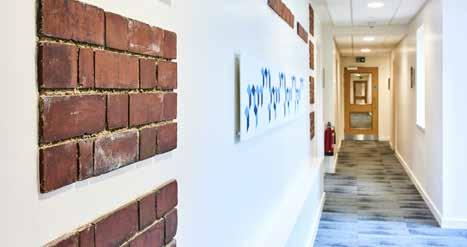
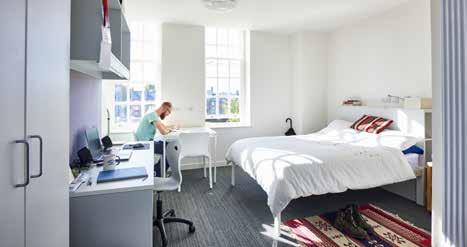
with emotional weight. This brings out themes of home also being centred around (im)material conditions, relationships and relations, memories and items that evoke warm feelings. This suggests that while their ‘true’ home was not in Durham, in many ways the ‘feeling of home’ was mimicked in that space - a feeling of safety, happiness, and belonging.
Home As A Source of Support
When I first moved to the UK, I never imagined that I would call Durham home. But over the years, I’ve met amazing people who have grown into my second family. I think that home is wherever you feel loved, safe and have a sense of belonging.
- Anonymous
Closely related to home as a feeling, is the idea of home as a source of support. Notably, the idea of support seemed to have flourished through a vocabulary of kinship; we were happily surprised to see that Ustinov has been repeatedly and explicitly characterised as a ‘big family’. To some it might appear as a rather strange phrase. Yet, in a way, it makes the pieces fit together. A lot of theories have been produced about concepts of family that, despite a lack of blood ties, attract this meaning of intimacy and bonding through choice and support. Especially when it comes to people building a life far away from ‘home’, the idea of a family of cohabitation and co-existence becomes crucial. Now, imagine how much this need is highlighted under the current health condition and its social repercussions. Those who remained in Durham while defining ‘home’ in this way spoke about the importance of communication with people ‘back home’, while simultaneously relying heavily on those around them for support to create that sense of a ‘second home’.
“After lockdown eased in the end of June, I travelled to Durham to collect my stuff. As the train approached Durham station I felt this feeling of finally being at home. I felt excited to see familiar places. I went to my college and was so happy to see familiar faces. I went to my room and saw my items, my plants (that were luckily still alive) and I was so happy. It was then that I realised, everywhere I am, everywhere I go, everywhere I have some memory, some physical object I have a sentimental relationship with, that is home.”
- Anonymous
The analyses we have offered so far might not be completely surprising. However, they all share a common ground; they gesture towards the idea of multiplicity of home. For a lot of us, not only may home correspond to more than one place, but it might also correspond to different colourations of experience. Think of Ustinov, your friends, your peers, even those you might have had an argument with. Some of them migrated from another continent, from another country, from other parts of the UK, or originated in County Durham. However, all of us share something. Home, at least for a period of time, was plural. Therefore, some return ‘home’, stay at ‘home’ or make a ‘second home’. Or some would leave a ‘home’ to go back ‘home’.
Final Reflections
With all that said, this article is for you who have been part of this big community, as much as it is for those to come - especially all who began their journey this academic year who may reasonably feel even more anxious. The responses to the question ‘What is home?’ showed both of us that there are many understandings of it, and for many students, Ustinov College fits those requirements. It is fair to say that once something has worked well, it is worthy of praise. College staff and members of the Ustinov community provide the camaraderie, care, and support that make people feel appreciated and that they truly belong. It makes them feel at home. For some students it is a second home, for others it is their only one. Either way, Ustinov College became home for a lot of us, not only because it provided security and comfort; but also because it gave us the opportunity to dream of starting life anew.
By Sorina Avadanei

deck shuffler
there’s no room for whispers between oceans whatever glows from above and pulsates from below bends to the queen of entropy
home is a collective name of winds you fall in love with that sometimes stop blowing causing a kiss between a ship’s bow and the abyss
i will go cry by the rising tides and they will recognise my tears
i shall become the nymph of unrequired affection and learn to sing my luring tunes through hiccups
pebbles outgrow the moss as children outgrow their old coats there is nostalgia in knowing one day you will turn into dust



